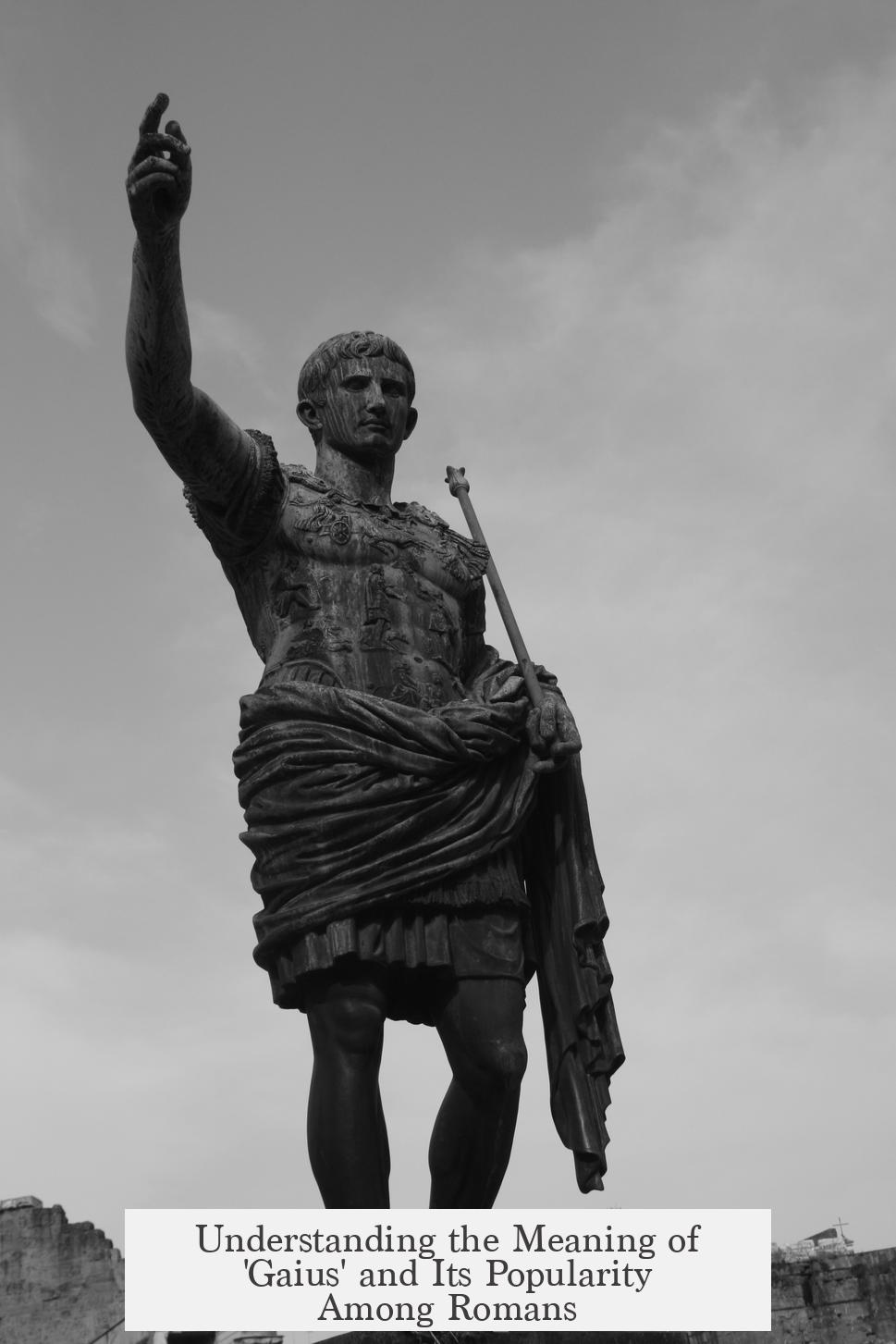“Gaius” is a Roman praenomen, or personal first name, widely used throughout Roman history and among all social classes. It functions as a given name, similar to a modern first name, distinct from nomen (family name) and cognomen (branch or nickname), within the Roman naming system.
The term “Gaius” originates from Latin and most scholars agree it derives from the verb gaudere, meaning “to rejoice.” This roots the name in the concept of joy, happiness, or gladness. The original or older form might have been “Gavius,” related to Oscan and Faliscan versions, showing the name’s wider Italic background and early use beyond just Latin-speaking Romans. In the classical Latin alphabet, “Gaius” was spelled “Caius,” which is why it was often abbreviated as “C.” in inscriptions and documents. The feminine version is “Gaia.”
Roman naming practices began with two parts: the praenomen (personal name) and the nomen gentilicium (clan or family name). Later, they added a cognomen to specify particular family branches, thus developing the familiar Roman three-name format—the “tria nomina.” The praenomen was mostly used in personal, intimate, or household contexts to distinguish individuals, while the nomen indicated one’s broader clan.
During the Roman Republic, there was a limited set of praenomina in general use; only about 14 were common across the population. “Gaius” belonged to this core group, alongside names like Lucius, Marcus, and Quintus. The limited pool of options meant certain praenomina like “Gaius” became highly frequent. Roman citizens were legally and socially obligated to have a praenomen, but could only choose from a relatively small selection. This institutional factor partly explains why “Gaius” appears in so many Roman names.
The name’s popularity also owes much to its association with famous historical figures. One of the most well-known bearers was Gaius Julius Caesar, the military leader and dictator whose legacy shaped Roman and world history. Similarly, Gaius Octavius, later Emperor Augustus, further cemented the name’s prominence. Its generic use was so widespread that in Roman culture “Gaius” and “Gaia” became shorthand for any man or woman. In fact, a customary Roman wedding included the phrase “ubi tu Gaius, ego Gaia” (“where you are Gaius, I am Gaia”), symbolizing marital unity.
Beyond Rome’s fall, the name “Gaius” endured in the medieval and modern periods across various European cultures. It appears in Greek as Γάιος (Gáios), Italian as Gaio, Spanish as Cayo or Gayo, French as Caïus, and several other forms. The name also has biblical significance, with a New Testament figure named Gaius who was a bishop and saint.
| Aspect | Detail |
|---|---|
| Meaning | “To rejoice,” related to Latin gaudere |
| Type | Roman praenomen (personal name) |
| Original Form | Likely “Gavius,” with regional variants |
| Abbreviation | “C.” from older spelling “Caius” |
| Usage | Common across Roman patrician and plebeian families |
| Number of Common Praenomina | About 14 in the Republic, including Gaius |
| Cultural Role | Generic personal name, used in phrases and rituals |
| Historical Figures | Gaius Julius Caesar, Gaius Octavius (Augustus), others |
| Legacy | Survives in European languages, and biblical reference |
The abundance of Romans named “Gaius” results from the societal structure controlling name choices. All citizens needed a praenomen, but few were in use. “Gaius” was second only to Lucius in popularity and crossed class boundaries. Unlike the nomen, which indicated fixed lineage, the praenomen helped families distinguish individuals in day-to-day life.
Familiarity with “Gaius” also highlights Roman traditions. The wedding phrase reveals how the name functioned symbolically, representing the individual married couple through common personal names. Its continued use in historical records and literature attests to its importance.
- “Gaius” is a personal Roman first name (praenomen) very common historically.
- It most likely means “to rejoice,” derived from Latin gaudere.
- Romans had limited choices of praenomina, making “Gaius” widespread across social classes.
- Its popularity was reinforced by notable figures such as Gaius Julius Caesar.
- The name has cultural, historical, and religious significance extending beyond ancient Rome.
- Abbreviated as “C.” due to its older spelling “Caius.”
- Symbolic use in rituals and language made “Gaius” representative of any man in Roman society.




